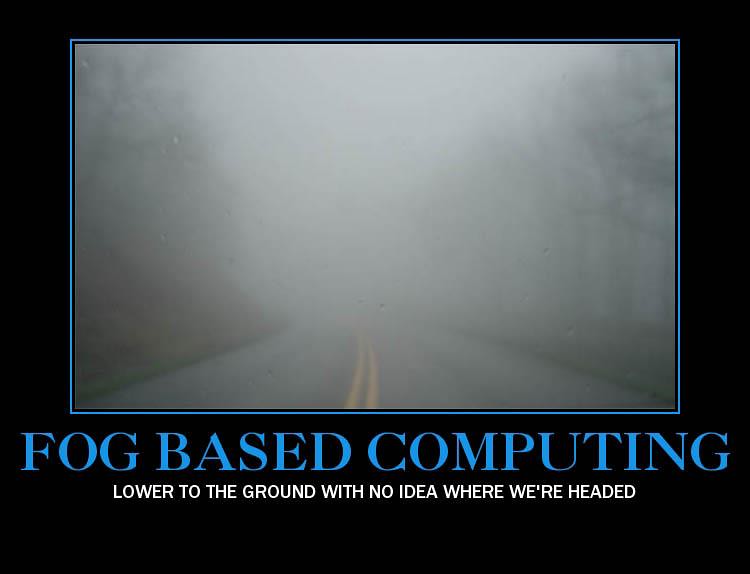HardOCP News
[H] News
- Joined
- Dec 31, 1969
- Messages
- 0
First there was "the cloud," now we have "fog computing." What's next? Steam? Wait, that's already taken. Quick, we need to come up with another buzz word for the next big thing before someone else does!
Turns out, the cloud is not all it’s been hyped to be. Enterprise CIOs are coming to realize that many of the services and apps and much of the data their users rely on for critical decision-making are better suited closer to the edge – on-premise or in smaller enterprise data centers. Say hello to the next big thing: fog computing.
Turns out, the cloud is not all it’s been hyped to be. Enterprise CIOs are coming to realize that many of the services and apps and much of the data their users rely on for critical decision-making are better suited closer to the edge – on-premise or in smaller enterprise data centers. Say hello to the next big thing: fog computing.
![[H]ard|Forum](/styles/hardforum/xenforo/logo_dark.png)
